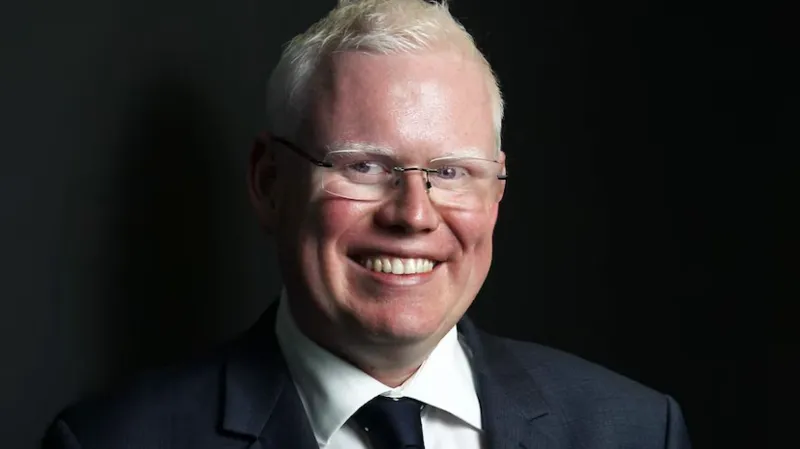Prospect of Trump's return stokes anxiety in Europe
There is wide-scale anxiety over Trump abandoning Ukraine, and maybe even NATO, but he still has many admirers among the continent's far-right.

When Donald Trump stepped onto the stage at the Republican National Convention this week, the audience welcomed him with raucous applause. Some shed tears, others hailed him as a survivor.
The failed assasination attempt against the former president not only galvanized the support of his own base, but drew sympathy from across political lines and continents.
European leaders, including French President Emmanuel Macron, German Chancellor Olaf Scholz and EU Comission President Ursula von der Leyen, sharply condemned the attempt on his life and wished him a speedy recovery.
"Political violence has no place in a democracy," von der Leyen said in a post on social media platform X.
Trump already led incumbent president Joe Biden in several key swing states, but his narrow escape from death could put further wind behind his sails ahead of November's presidential election, which could bring forth a result that many democracies in Europe have long feared ― a second Trump presidency.
There is palpable concern across the continent that in a bid to quickly end Russia's war, Trump might pressure Ukraine into ceding territory to Russia. Doing so could encourage Russian President Vladimir Putin to try to further expand Russia's territory and threaten the Baltic nations.
Rafael Loss, a policy fellow at the European Council on Foreign Relations (ECFR), said that if Trump is voted the next US president, it could unleash ''a crisis in leadership" ― after all, the US has often led a western alliance on key global questions.
''If Trump decides on any arrangement with Putin to end the war in Ukraine and throws Ukraine under the bus, then that severely increases the threat to the rest of Europe,'' added Loss.
Would Trump pull US from NATO?
The prospect of Trump withdrawing the US from the North Atlantic Treaty Organization (NATO) is a major concern for the members of the security alliance. Europe's fears were renewed when John Bolton, Trump's former national security adviser, said in an interiew earlier this year that he was convinced that Trump would withdraw from NATO.
If Trump were to get close with like-minded far-right groups or politicians in Europe, he could strengthen them at the cost of the more liberal or centrist bloc currently favored by the Biden administration.
"In addition, the US contributes several hardware military capabilities to NATO," Loss added, some of which are critical to Europe's defense and not manufactured in Europe.
Connecting with Trump's team just in case
For at least a year European capitals have grappled with the question of how to deal with Trump if he comes back to power, though not much has been said publicly.
"The truth is nothing clear is on the table because in part nobody wanted to send the signal that they anticipate [a] Trump presidency or abandonment from Trump, even though it has been a credible scenario for many years,'' said Pierre Haroche, an associate fellow at the Jacques Delors Institute, a Paris-based think tank.
Prompted by Trump's strong poll numbers, some party officials from Europe have begun to reach out to his network. Several members of NATO delegations met with Republicans close to Trump during the NATO summit in Washington, D.C. earlier this month.
Among the audience at the Republican National Convention was Jens Spahn, a lawmaker of Germany’s center-right opposition party CDU.
"We should not make the same mistake again [we made] last time he became president, [when] no one really had a network with his team," he told DW in an interview.
Spahn even adopted a conciliatory tone, saying that while he didn’t like Trump’s style, he saw common cause in some of his ideas such as strengthening the European arm of NATO.
Division in Europe after a Trump win?
Some experts say that Trump's cold shoulder towards the continent is encouraging Europe to manage more of its own defenses, which were originally planned with US capabilities and unfaltering support in mind.
Former EU Commission President Jean-Claude Juncker established a European defense fund in 2017, during Trump’s first presidency, in a step forward towards more European autonomy in security.
Haroche said the worst fallout of Trump’s reelection, however, could be division in Europe.
"The real risk is that everybody is looking out for their own interests, unable to present a cohesive position and act in a cohesive manner," against common threats such as Russia, Haroche said.
At the convention Trump revealed Ohio senator J.D. Vance as his pick for vice-president, who just like Trump is a fan of Hungary's prime minister Viktor Orban. Vance has been described by the US press as Trump’s heir of the far-right MAGA movement and bad news for the transatlantic alliance.
Trump’s VP pick: A message to Europe?
"I don't really care what happens in Ukraine one way or the other," Vance said on a podcast with former Trump strategist Steve Bannon in 2022.
At the Munich Security Conference earlier this year, Vance said that the US’s security focus will shift to the Indo-Pacific, and called on Europe to manage its own affairs.
'"There are a lot of bad guys all over the world. And I'm much more interested in some of the problems in East Asia right now than I am in Europe," he said at the conference.
Ricarda Lang, co-leader of the German Green Party, who was a co-panelist at the conference, said that Vance left no doubt that Trump would "deliver Ukraine to Putin."
After Vance was announced at the convention, Lang posted on X that his selection as running mate is "worrying for Europe."
In an interview with DW, CDU MEP David McAllister elaborated on why Vance’s nomination has alarmed Europe.
"He is firmly opposed to further US support for Ukraine in its fight against the Russian invasion," McAllister said. "Secondly, he is in favor of additional tariffs on imports from Europe. And thirdly, he has criticized Europe being overly dependent on the euro."
US defense earnings vs. isolationism
Experts said Trump and Vance’s isolationist policy abroad clashes with the interests of the US’s defense industry. If Trump wants to withdraw the US's protection, then Europeans may feel less inclined to purchase expensive defense equipment from American companies.
Haroche said that defense spending has been an indirect way to buy "American goodwill and support."
"It might be difficult for Trump to reconcile 'America first'-policy with economy first," he added.
DW






